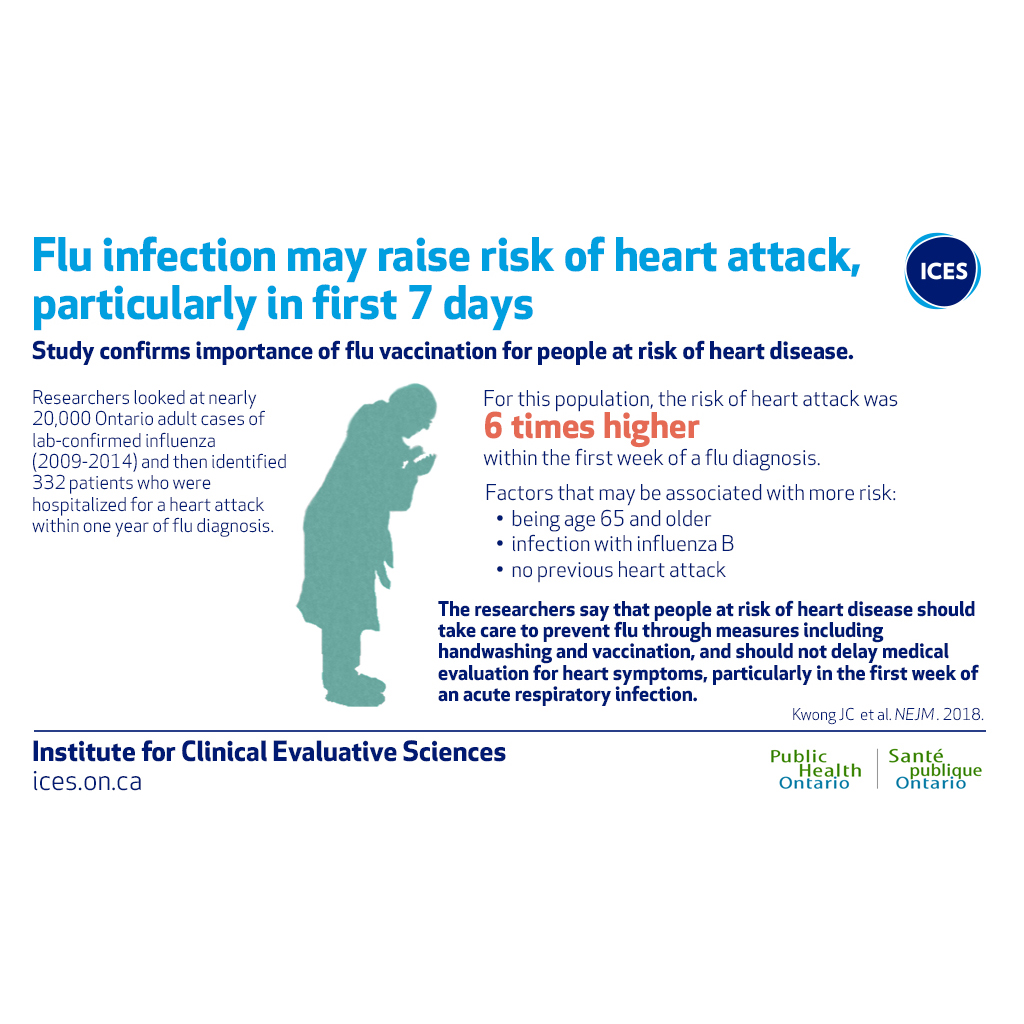There’s a new reason to fear this year’s flu. Researchers at the Institute for Clinical Evaluative Sciences (ICES) have found that the chances of a heart attack increase six-fold during the first seven days after contracting the influenza virus.

This puts everyone, especially people over 65, those who have the influenza B infection and those who are experiencing their first heart attack, in a particularly precarious position during those early days.
WATCH BELOW: Flu season in full swing

In collaboration with Public Health Ontario (PHO), researchers looked at nearly 20,000 adult cases of confirmed influenza infection from 2009 to 2014, and identified 332 patients who were hospitalized for a heart attack within one year of receiving a flu diagnosis. The results were published in the New England Journal of Medicine.
Dr. Jeff Kwong, lead author of the study and a scientist at ICES and PHO, says this serves to reinforce the importance of getting vaccinated.

Get weekly health news
“This is mostly a problem in people over 65, but the fact remains that everyone is at risk, whether they’re low- or high-risk,” he tells Global News. “In the week after infection, the chance of heart attack jumps up six times compared to the year before or after infection.”
The reason for this is that the influenza virus can cause stress to the heart, making it beat faster. In addition, the infection causes inflammation in the heart and blood vessels, which if damaged, could lead to clots.
READ MORE: Health officials warn of a shorter but more intense flu season
Researchers also looked at other illnesses, including respiratory syncytial virus (RSV, an infection of the lungs and respiratory tract) and respiratory viruses other than the flu or RSV, and found the former to increase the risk of heart attack by 3.5 times, while the latter raised the risk by 2.77 times.
“These findings even applied to those who tested negative for the flu virus or who had cleared the virus. Basically, what this tells us is that anytime someone gets sick, their chance of heart attack increases,” Kwong says. “But the flu poses the highest risk.”
Although much has been made about the dangers of this year’s flu, Kwong calls it “more hype than anything else.”
READ MORE: Severe flu and the chance of death: How to tell if you need to see a doctor
“What’s different in Canada is that we’re seeing H3N2 season now, which is at its peak and we’re also seeing the influenza B infection at the same time. That’s unusual and it makes the flu seem worse than normal.”
He says to take the necessary precautions to avoid spreading the infection, including washing your hands frequently and staying home from work if you’re sick.
“Hopefully this will also give patients — especially those at risk of heart disease — more reason to get the flu vaccine, as well as other vaccines like the pneumococcal vaccine, which can prevent respiratory infections.”











Comments
Want to discuss? Please read our Commenting Policy first.